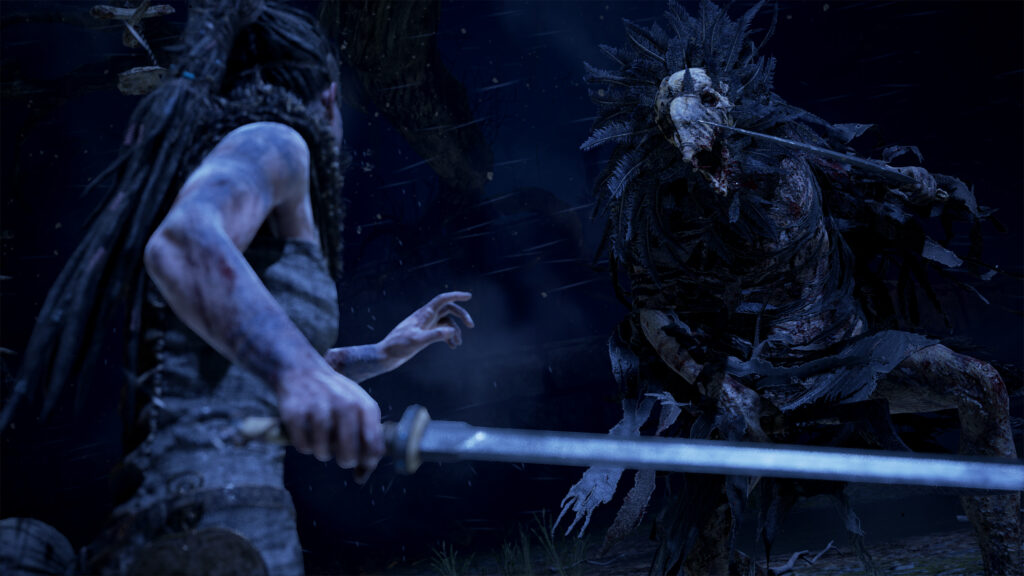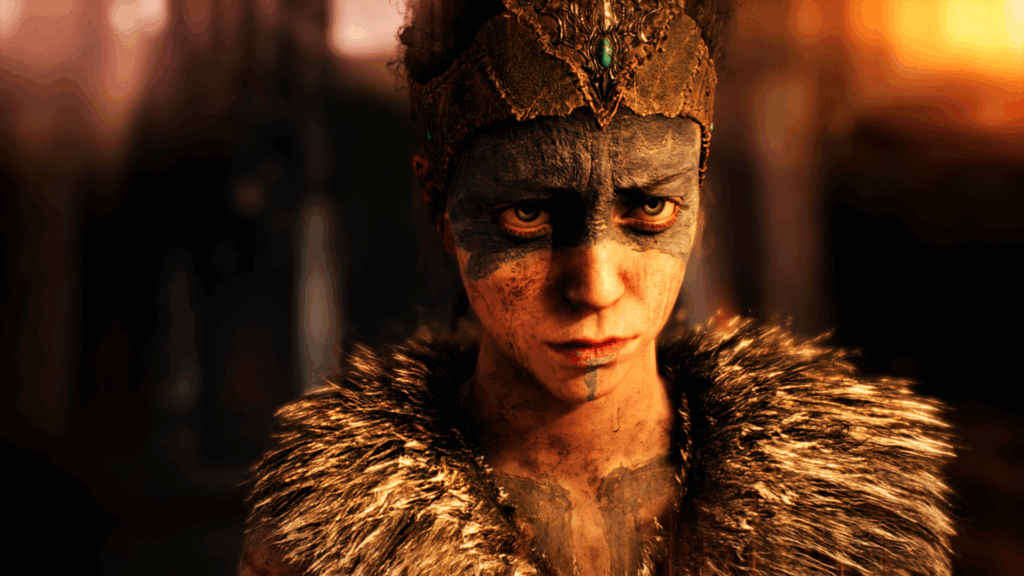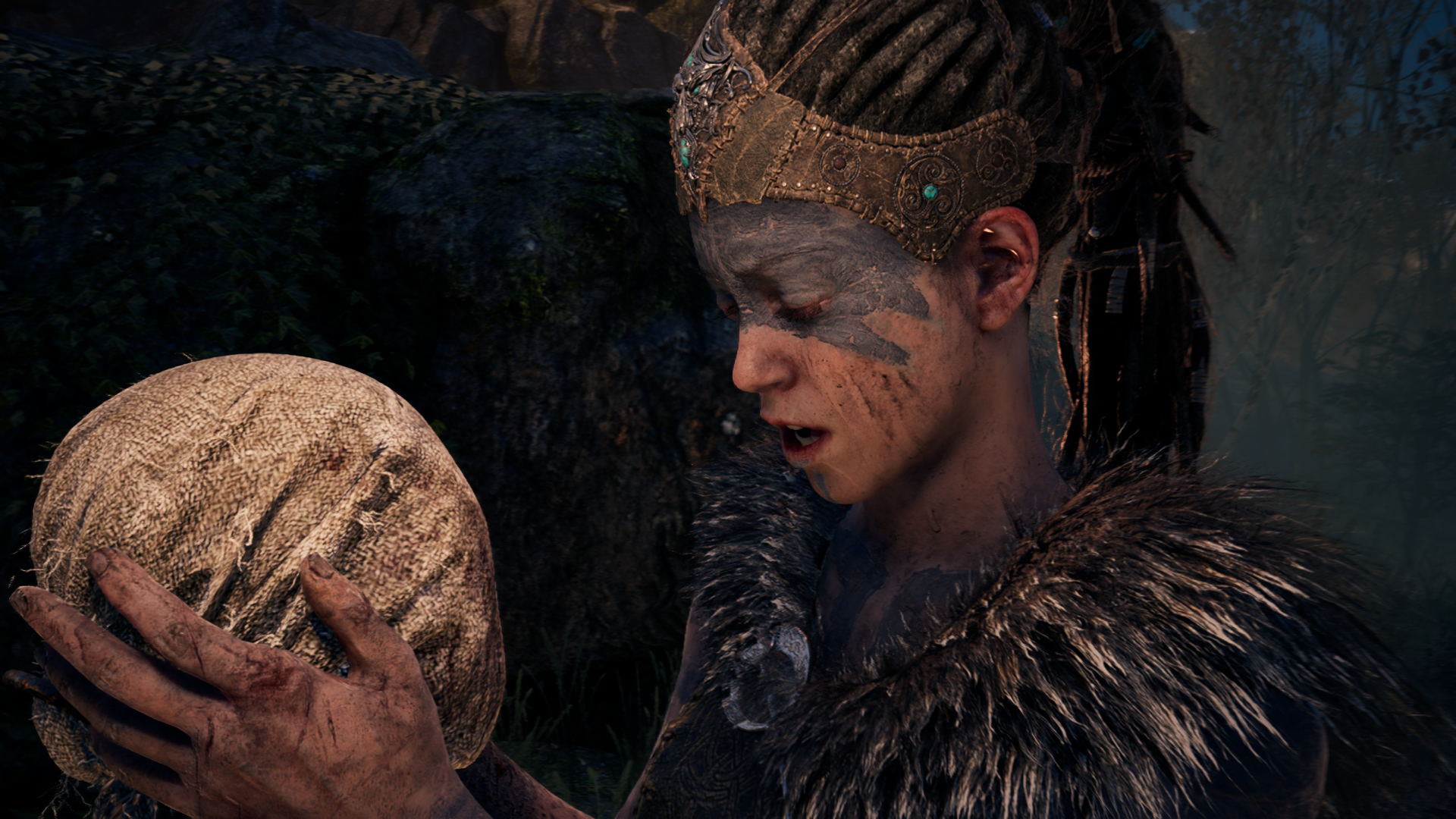There are games I play to unwind, and there are games I play to vibe. But then there’s Hellblade: Senua’s Sacrifice, which I played, sat silently through the credits, and then just stared at a wall for a while.
This is a game that doesn’t entertain so much as it confronts. It’s sharp, beautiful, and brutal. I went in expecting a stylish indie take on Norse mythology. What I got instead was a raw, painful, intimate experience that stuck with me long after I shut it off.
Gameplay
You play as Senua, a Celtic warrior journeying into the depths of Norse hell to save the soul of her dead lover. But it’s not just a story about grief; it’s a story about psychosis, trauma, and perception.
The environment twists. Voices whisper in your ear. Doubt, fear, shame, defiance, they all fight for space in your head.
Note
Wear headphones. If you don’t, you’re missing half the experience!
Combat

In Hellblade: Senua’s Sacrifice, there’s no traditional UI, no objective markers, no mini-map. You learn by feeling, and sometimes that means that you will feel very uncomfortable.
The game leans heavily into atmosphere, and at times it’s almost unbearable in how well it captures panic, dissociation, and despair. That said, I wouldn’t call it horror but more like emotional claustrophobia.
Puzzles
In Hellblade, puzzles aren’t just filler between fights; they’re a core part of the experience, woven into the story and Senua’s psychosis. They blur the line between “game mechanic” and “storytelling device.”
Main Puzzle Types
- Rune Gate Puzzles
- Illusion Puzzles
- Shard Trials
- Perspective Puzzles
Who is Senua?

Senua is a young warrior from the Orkney Islands (off the coast of Scotland) during the late 8th century, around the time of Viking expansion. She’s part of a Celtic/Pictish tribe, raised in a small, isolated community with strict and often cruel beliefs about the supernatural.
She’s not your typical fantasy warrior; she’s skilled in combat, yes, but her defining traits are her resilience, determination, and the fact that she lives with severe psychosis.
Voices in Your Head
Let’s talk about the audio design, because it deserves its own shrine.
The binaural soundscape is nothing short of genius. The voices in Senua’s head (called Furies) are constantly there, muttering, mocking, encouraging, panicking. Sometimes they help, sometimes they lie. They always make you feel like you’re not alone, and not in a comforting way. It’s a subtle but devastating way to simulate what Senua is going through without ever turning her into a caricature.
The game was developed in collaboration with neuroscientists and people with lived experience of psychosis, and it really shows.
This Game Isn’t for Everyone

I’ll be completely honest. I couldn’t play the game for long stretches. It was too heavy. I would go in for 30–40 minutes, get emotionally kicked in the chest, then go touch some grass or lie in bed to relax or watch a video of cats barking. You know, balance!
But when I finished it, I felt something rare: quiet gratitude. Hellblade didn’t wrap things up neatly. It didn’t try to fix Senua. It just… stood beside her. Held space for her. And, somehow, by extension, held space for me too.
System Requirements
| Requirement | Minimum | Recommended |
|---|---|---|
| Operating System | Windows 7 64-bit | Windows 10 64-bit |
| Processor | Intel i5 3570 or AMD FX-8350 | Intel i7 4790 or AMD Ryzen 3 1300X |
| Memory (RAM) | 8 GB | 16 GB |
| Graphics Card | NVIDIA GTX 770 or AMD R9 280X | NVIDIA GTX 1060 6GB or AMD RX 480 8GB |
| Storage | 50 GB available | 50 GB available |
Console Availability
Hellblade: Senua’s Sacrifice is available on:
- PlayStation 4
- PlayStation 5
- Xbox One
- Xbox Series X|S
- Nintendo Switch
Final Thoughts
Hellblade: Senua’s Sacrifice is not a fun game, but it’s an important one. It takes mental illness seriously without turning it into a trope. It tells a deeply personal story without being self-indulgent. It invites you to feel it.
So yeah. Play it. But maybe not at 1 am. And maybe not when your mental health is hanging by a single unbuttered piece of toast.
Have you played it? Did it haunt you in a good way? Or did you throw your headphones across the room halfway through? Drop a comment or send me your unfiltered thoughts, I’m still processing mine too.











